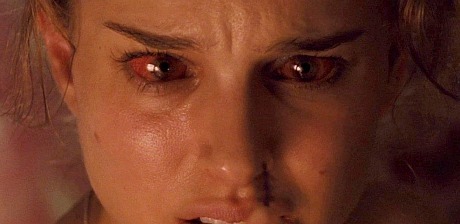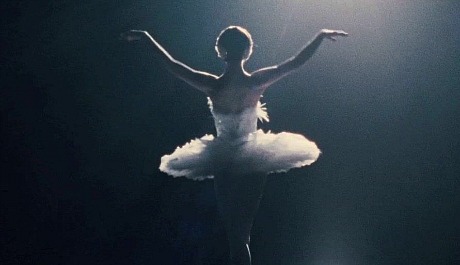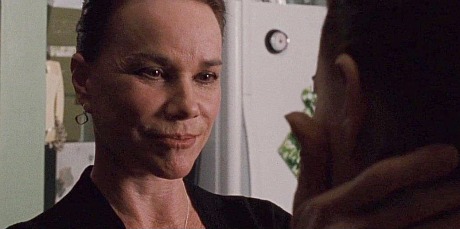I’m already feeling perplexed…okay, pissed off…by certain critics who are questioning the mad theatrical flamboyance and fatalistic delirium of Darren Aronofsky‘s Black Swan (Fox Searchlight, 12.3), and their particular focus on the increasingly agitated mood-quakes that torture Natalie Portman‘s ballet dancer character, Nina Sayers.

This was Aronofsky’s intention, guys. It’s the idea. The film and the famous ballet it’s half based upon are supposed to be seen as intertwined and flowing into each other. It’s a psychological disturbance drama as myth and vice-versa…right? Mixed in with several dabs of The Red Shoes and laced with Repulsion, etc. Not hard to figure.
But it is, apparently. Marshall Fine and EW‘s Owen Gleiberman have complained about the nutso stuff. The hallucinatory spells and fable-like madness spasms are a bit much for them. “Why didn’t Aronofsky dial it down?,” they’re basically saying. “Why didn’t he give us…you know, a somewhat calmer, more psychologically intimate, older-guy version of Black Swan without all the emotional leaps and delusions and shattered glass?
“At some point, [Aronofsky’s] horror-movie shocks turn a little silly,” Fine writes. “His choices don’t ramp up the stakes but, too often, undermine them…[he] defies you to take the ride seriously.” Slant‘s Ed Gonzalez has written that “the overall effect is ostentatiously calculated, ill-fitting, and emotionally aloof.”
I know Fine and Gleiberman, and I know they went to college and generally don’t miss a trick so I don’t get it. The backdrop of Black Swan concerns preparations for a New York City Ballet production of Swan Lake, and is obviously intended to be a kind of plot-mirror of Peter Tchaikovsky‘s legendary Russian ballet, and a tonal echo of it. Gonzalez, at least, considers at the end of his review that “perhaps Black Swan, like Swan Lake, is meant to be seen itself as an opera, a fusion of synergic sound and movement — albeit a very filmic one.”

Boiled down, Swan Lake is about an evil sorcerer who’s transformed several young girls into swans, and their parents’ grief has formed a lake of tears — i.e., Swan Lake. The principal figure in this realm is Odette, the Swan Queen. The curse afflicting Odette can only be broken if a man vows undying love for her. A young prince tries to save her, but he and Odette achieve a release only in death — they jump into the lake and, having drowned, rise up to the heavens.
The first lines spoken by Vincent Cassell‘s ballet-director character, Thomas, in Black Swan recount the Swan Lake plot, ending with a line that the Swan Queen “finds release through death”…or words to that effect.
Cassell’s Thomas — hello? — is the evil sorcerer who turns Portman’s Nina into the Swan Queen. Portman’s highly neurotic stage mom, played by Barbara Hershey, has been crying tears of frustration for years over having failed to make it as a ballet dancer in her youth, and it is her lake that Portman’s Nina is clearly drowning in. It’s obvious what’s in the cards. Mila Kunis‘s Lily character is the scheming Black Swan. Winona Ryder‘s Beth Macyntire character, an older ballet dancer bitter about retiring, is referred to in the IMDB credits as “the dying queen.” There’s no great romance or young prince in Black Swan — it is strictly about Nina vs. Lily vs. her mother vs. Thomas — but the handsome Benjamin Millepied plays a young ballet dancer who could be the prince if Aronofsky had wanted to to go in that direction.
It just seems so clear to me, so unmistakable. Black Swan is supposed to affect you like the original Russian folk tale inspired the original authors of Swan Lake. It’s supposed to be fanciful, passionate, wacko, extreme, imaginary, loony. It wants to get into your blood.













